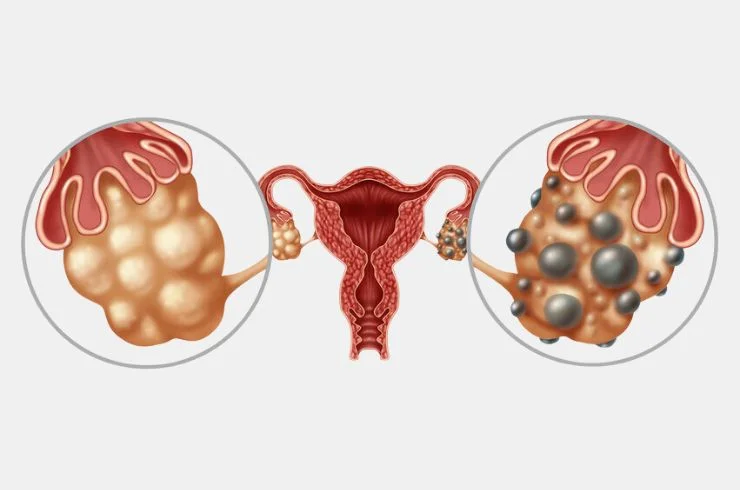Poly Cystic Ovarian Disease

Polycystic Ovarian Disease (PCOD), also known as Polycystic Ovary Syndrome (PCOS), is a hormonal disorder that affects individuals with ovaries, often during their reproductive years. The condition is characterized by the presence of multiple small cysts on the ovaries and an imbalance of reproductive hormones, which can lead to various symptoms and complications.
Symptoms
Common symptoms of PCOD include:
- Irregular menstrual cycles: Delayed, missed, or heavy periods are common due to a lack of ovulation.
- Excess androgen levels: This can lead to symptoms such as excess hair growth (hirsutism), acne, and scalp thinning.
- Ovarian cysts: Small cysts can form on the ovaries, which may cause pain or discomfort.
- Infertility: PCOD can lead to difficulty in getting pregnant due to irregular ovulation.
- Weight gain and insulin resistance: Many people with PCOD experience weight gain and a higher risk of developing type 2 diabetes.
Causes
The exact cause of PCOD is unclear, but it is believed to involve a combination of genetic and environmental factors. Insulin resistance, where the body does not use insulin efficiently, is common in individuals with PCOD and can contribute to high androgen levels.
